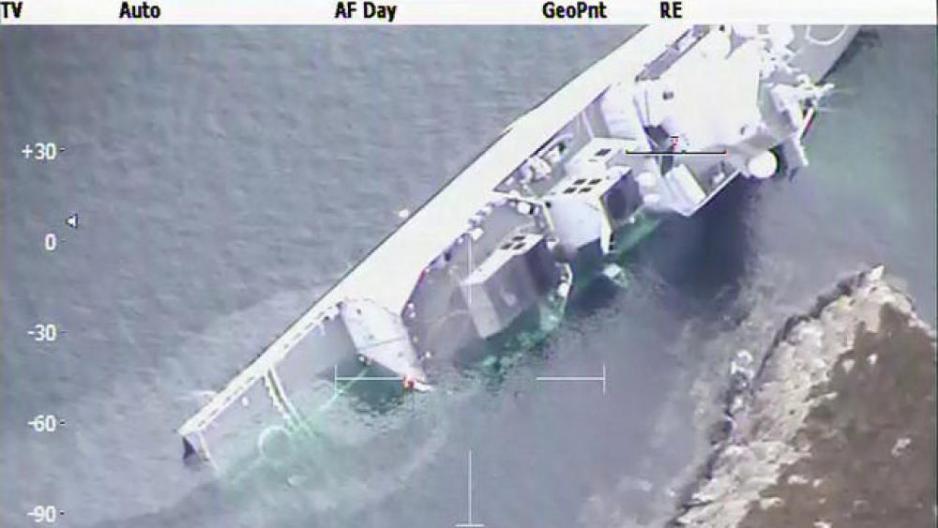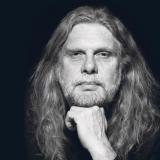A Freezing Twitter Storm Sweeps Across the Arctic

Den havarerte fregatten «Helge Ingstad» ble årets fremste symbol på et Arktis i endring, skriver HNN-redaktør Arne O. Holm i denne kommentaren. (Foto: Kystverket) // The shipwrecked Norwegian frigate "Helge Ingstad" became this year’s most prominent symbol of a changing Arctic, HNN Editor-in-Chief Arne O. Holm writes in this commentary. (Photo: Kystverket/The Norwegian Coastal Administration)
The shipwrecked frigate "Helge Ingstad" became this year’s most prominent symbol of a changing arctic. That was not how I pictured it just a few years back. Back then, we spoke about the Arctic as a symbol of international dialogue, and as a food chamber for the rest of the world.
An incomprehensible shipwrecking at the end of gigantic NATO exercise in the High North. An answer to Russian military armament ending on a seashore.
And a Norwegian Defense Minister’s attack on the press because we required answers to how a modern warship could aim for a huge tanker in a Norwegian fjord.
This happens while the East and the West spur each other on to conflict.
The halting dialogue
Dialogue is sidetracked now; the primitive and graphic language of military power rules the verbal ground.
The predictable replaces the unexpected.
The war arena is still reserved for the poorest and most suppressed parts of the population further south on the globe. It appears to remain like that for the foreseeable future.
However, its terminology is exported to the High North too. International agreements are frequently terminated and no longer carry any value.
The West Wing of the White House brings a continuous storm of hateful tweets. Friends and enemies alike are attacked without any apparent logic other than that which may be present in the head of a confused American president at any given time.
Passive Arctic Council
An American president who was aided to power by a Russia intent on creating divisions in the West. The initiative was so successful that Vladimir Putin today can sit quietly in his chair and just watch how dialogue shipwrecks, as if it were a military frigate looking for something to run into.
Donald Trump more or less singlehandedly manages to tear apart what was meant to be the future of the Arctic too.
He ignores an increasingly passive and absent Arctic Council, just like he does with other international fora. The opportunities that lay in a forum where all Arctic states – Russia and the USA included – still meet has by and large been wasted and replaced by twitter politics and its relentless urge to confront.
The Climate Agreement is rejected and replaced by reactionary industrial solutions to the world’s energy demand. The result is that the Arctic is left on its increasingly ice-free own.
People are driven away from climate and war, only to meet physical and mental walls.
Trade agreements, vital for us in the High North, are ripped apart and replaced with customs barriers and sanctions.
Even the agreements that were to secure some form of control over the world’s nuclear arsenal are torpedoed by presidents holding the power to control life and death.
Twitter politics aim mercilessly for the weakest; for women, for skin colour, for refugees, for the poorest.
In addition, the president of a democratic nation has declared the press and the free word to be the main enemy.
I do not know if it is possible anymore, but if I were to make a wish for something in 2019, it would have to be for Norway to take responsibility for revitalizing the cooperation taking place through the Arctic Council. It is, possibly, an impossible task. Perhaps the Arctic Council is surviving exactly because it is about to quietly drift into sleep during its temporary stay in Finland. Next year, Iceland takes over the Chair of the Arctic Council, though that may not necessarily mean much for its visibility on the international political stage.
Norway’s role
The only permanent feat of the Arctic Council is its secretariat, located in Tromsø, Norway. That provides Norway with an opportunity to maintain and reinforce international relations, at least in theory.
Nevertheless, our own Defense Minister, Frank Bakke Jensen, does not quite manage that. It is hard to find modern examples of a defense minister with weaker diplomatic capacity than Bakke Jensen. His contribution is to attack the press, rather than to provide a clear – and perhaps soothing – voice in a challenging foreign policy situation.
When democratic solutions are under pressure, attacking the free press is a dangerous sidetrack.
When state leaders are no longer able to speak with each other, journalism represents a peaceful contribution in the struggle to maintain a continuous open dialogue between people from all over the world.

